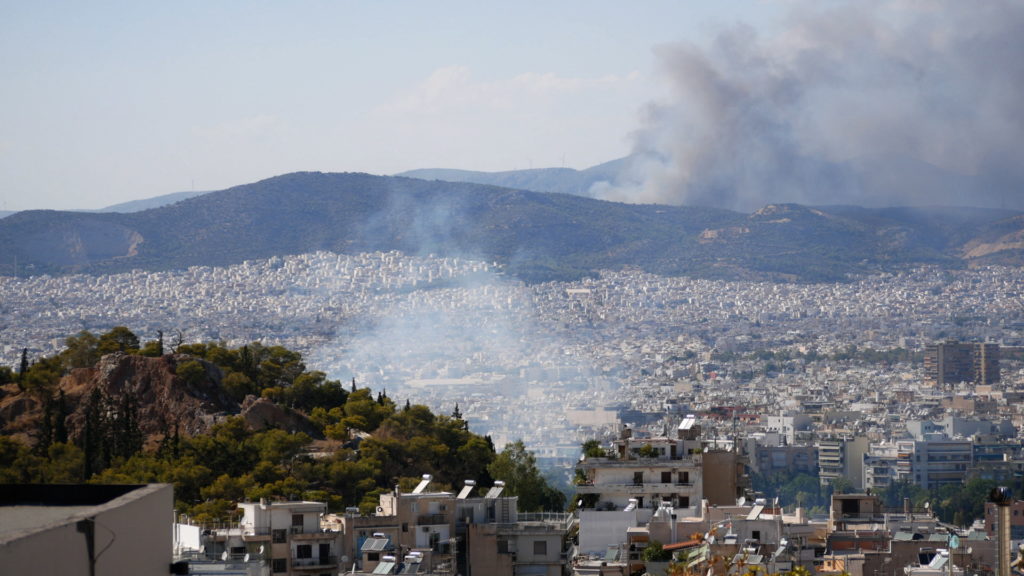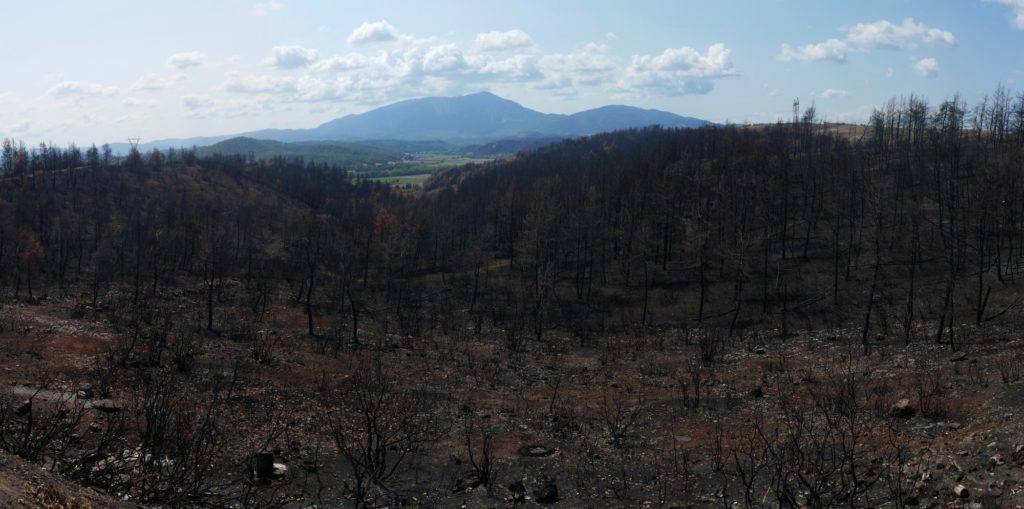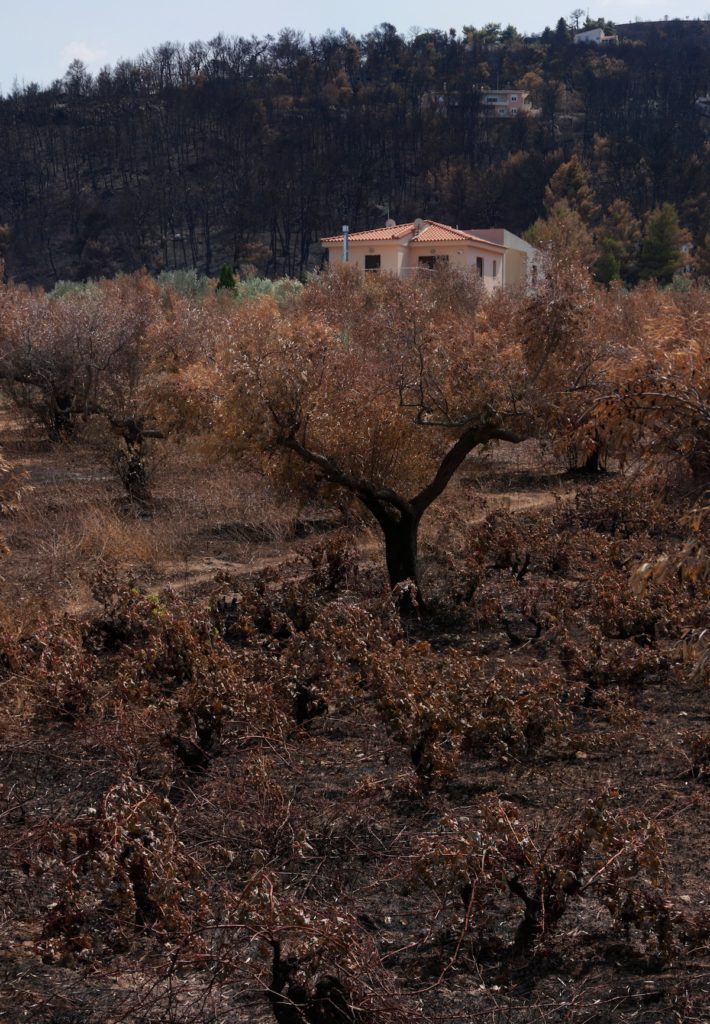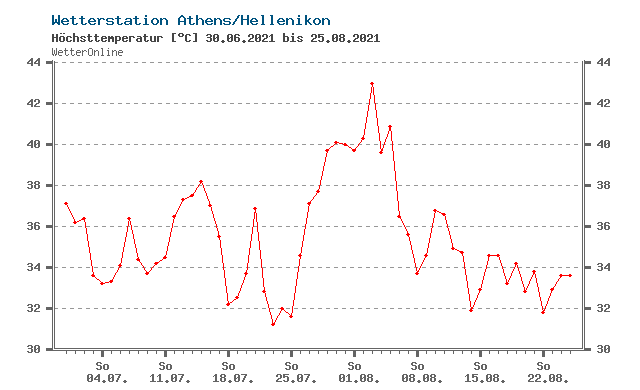Matthias, a member of the Forest Garden Pilot core team, describes the consequences of climate change on forests and people from his own experience:
August 2021 in Greece was a special time. It is worth to describe it here.
We had fled from the heat wave to the mountains. But the heat lasted much longer than predicted and so we made our way back to the capital. Coincidentally, we reached Athens just a few hours before the first forest fires north of the city darkened the skies over the Greek capital. The situation of the following days in the center of Athens seemed quite apocalyptic. For days during the heat wave, windows could not be opened because of the bad air with smoke smell & extremely high levels of particulate matter. This was very uncomfortable especially during the warm nights. Due to the imminent blackouts caused by the proximity of the forest fires to the grid infrastructure, the population was called upon to save electricity, i.e. also to turn down the air conditioners or even better to turn them off. During the day, the sun was sometimes only a glowing red ball of fire in the sky, so thick was the air saturated with smoke particles. Again and again, large ash particles tumbled from the sky like leaves.

How could it come to this?
Forest fires are not uncommon in the Mediterranean region. But no one has ever known these proportions before.
After the government in Athens successfully increased the size of the country’s police force and provided it with new equipment last year, it became clear within days that the deferred modernization of the fire department would cause huge damage: In the heat wave of early August 2021, Greece lost 11 percent of its national forests to wildfires.

Other questionable decisions during this crisis may also have led to the disastrous results: some of the firefighting aircraft were sent for maintenance just before the heat wave. Among them was the largest aircraft, known as “The Russian Beast.” The evacuations of entire areas meant that there were no people on the ground to inform arriving firefighters from other regions of important details about local conditions. While the bulk of the response forces and technology were deployed to the outlying areas of the capital, other very heavily wooded areas remained severely understaffed, making the fires there unmanageable by the time the winds picked up on the third day at the latest. As a result of all these failures, a third of Greece’s second largest island burned down.

I learned most of this information in conversations. I can’t guarantee whether it’s all true, but my research showed that despite real investments in police on the part of the fire department, there was an expansion only on paper at the time of the heat wave.
What can I learn from this?
Heat and drought scenarios are predicted for large parts of the world before the end of this century. They can already be felt today in places that did not have such extremes in the past. It is really no pleasure to witness such things! Temperatures around 40°C are too hostile to life in the long run. Climate change is real. Continuing as before will intensify such conditions in parts of the world where very many people will be affected.

In Brandenburg, too, there have been increasing numbers of forest fires in recent years. We can only hope that politicians will set the right priorities: Instead of more police, we need more firefighters!
READ AN UPADTE ON THE GREEK FORREST 8 MONTH LATER
Matthias Fritsch is part of the core team of the Waldgartenpilot in Rehfelde. As a filmmaker, he regularly documents phenomena related to climate change. As a freelance artist, he develops his own solutions and routines for a resource-saving everyday life. In Rehfelde, for example, he initiated the Experimental Gardens, the Shade Tree Nursery and the seedlings forest.

